LIFE
20 Red Flags Real Estate Agents Never Ignore
Published
8 months agoon

Shutterstock
When it comes to real estate, identifying potential red flags early in the process can save buyers and investors from costly mistakes and future headaches. Real estate agents are trained to spot issues that may not be immediately obvious to the untrained eye. From structural problems to market trends, these warning signs can significantly impact the value and desirability of a property. Understanding these red flags can help make informed decisions and ensure a smooth transaction. This article explores twenty critical red flags real estate agents look for when evaluating properties.
Structural Issues

Shutterstock
Cracks in the foundation, walls, or ceiling indicate serious structural problems. These issues can lead to costly repairs and compromise the integrity of the entire property. Structural problems can also affect the property’s resale value, making it less attractive to future buyers. Agents often recommend a thorough inspection to identify and assess the extent of any structural damage.
Water Damage

Shutterstock
Stains, mold, or a musty odor suggest leaks and potential water damage. Water damage can lead to significant structural issues and mold growth, posing health risks. It is often hidden behind walls or under floors, making it challenging to detect without a professional inspection. Addressing water damage typically requires extensive repairs and remediation efforts.
Pest Infestations

Shutterstock
Signs of termites, rodents, or other pests can cause significant damage. Pest infestations not only damage the structure of the property but can also pose health risks to occupants. The presence of pests often indicates poor maintenance and neglect. Agents typically recommend a pest inspection to ensure the property is free from infestations before proceeding with the sale.
Electrical Problems
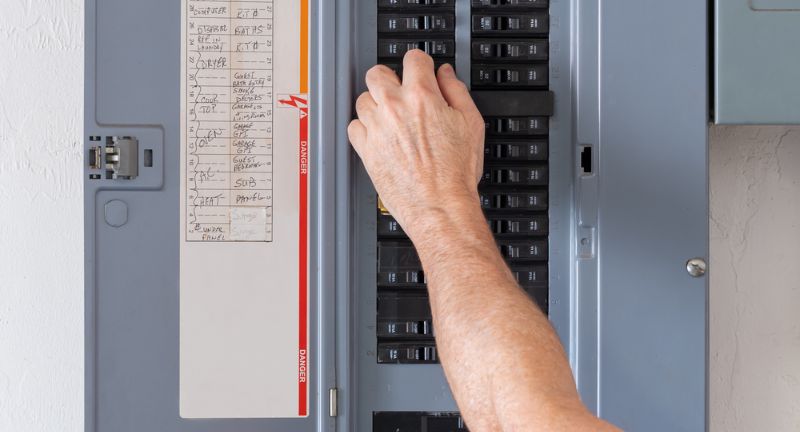
Shutterstock
Outdated wiring, frequent circuit breaker trips, or visible damage to electrical systems can be dangerous and expensive to fix. Electrical problems pose significant safety hazards, including the risk of fires. Updating an old electrical system often involves extensive rewiring and compliance with current building codes. A thorough electrical inspection is crucial to identify any issues and estimate repair costs.
Plumbing Issues

Shutterstock
Leaking pipes, low water pressure, and outdated plumbing can lead to costly repairs. Plumbing issues can cause water damage, mold growth, and other structural problems. Plumbing systems may need to be completely replaced in older homes to meet modern standards. Regular inspections can help identify plumbing problems early and prevent extensive damage.
Roof Condition
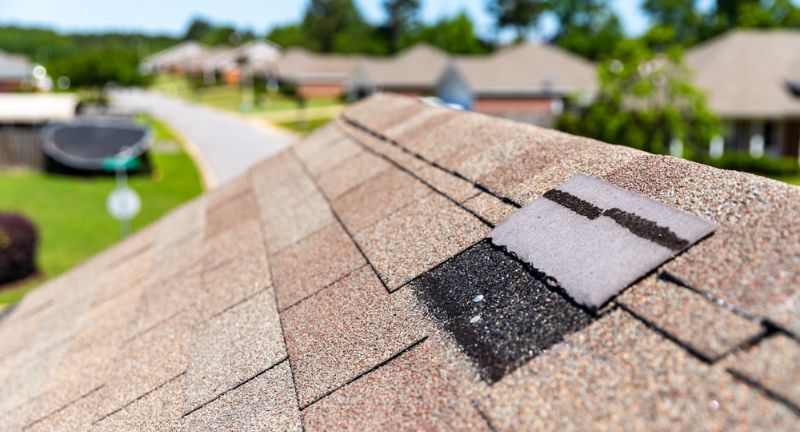
Shutterstock
Missing shingles, leaks, or signs of wear can indicate the need for a new roof. A damaged roof can lead to water leaks, structural damage, and increased energy costs. Replacing a roof is a significant expense, often costing thousands of dollars. Regular maintenance and timely repairs can extend the life of a roof and protect the property.
HVAC System

Shutterstock
An old or poorly maintained heating, ventilation, and air conditioning system can be a significant expense. Inefficient HVAC systems can lead to higher energy bills and uncomfortable living conditions. Replacing or repairing these systems can be costly and disruptive. Regular maintenance is essential to ensure the HVAC system operates efficiently and reliably.
Asbestos or Lead Paint
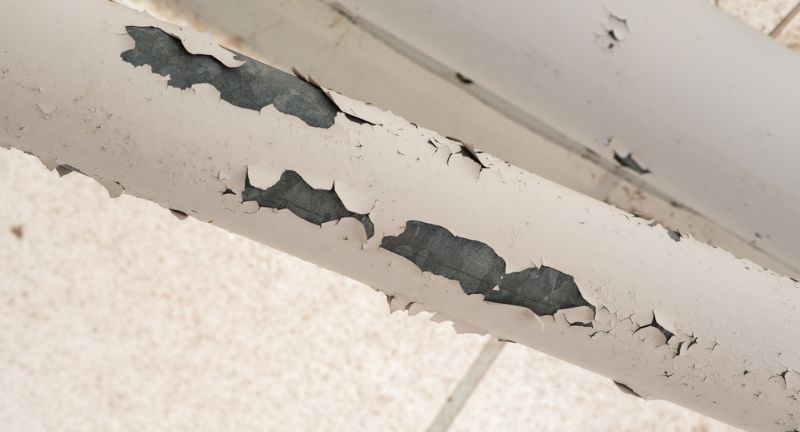
Shutterstock
These hazardous materials are costly to remove and pose health risks. Asbestos and lead paint were commonly used in older homes and can cause serious health problems if disturbed. Proper remediation requires specialized contractors and can significantly increase renovation costs. Agents advise testing for these materials before purchasing older properties.
Poor Drainage
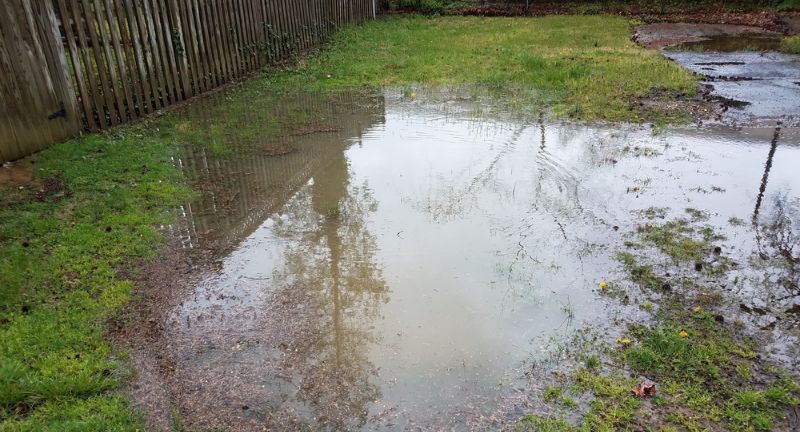
Shutterstock
Water pooling around the foundation or in the yard can lead to flooding and foundation problems. Poor drainage can cause significant damage to a property’s structure and landscaping. Addressing drainage issues often involves extensive work, such as regrading the yard or installing drainage systems. Proper drainage is essential to protect the property from water-related damage.
Improper Renovations
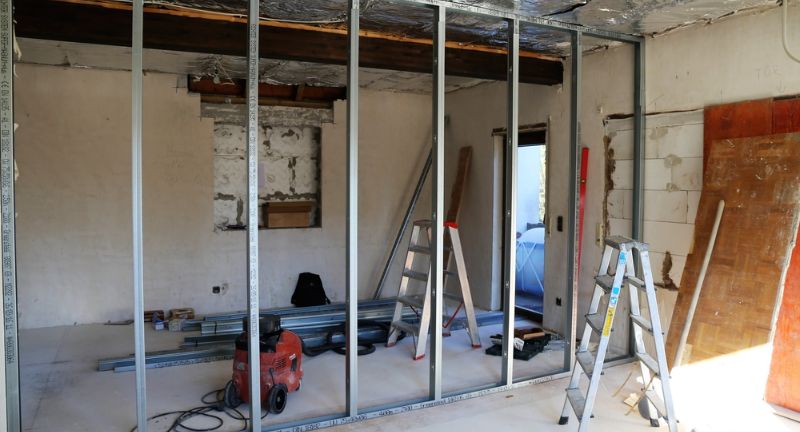
Shutterstock
DIY projects or unpermitted work can cause legal and safety issues. Improper renovations may not meet building codes or safety standards, leading to potential hazards. Unpermitted work can complicate the sale process and affect the property’s value. Agents recommend verifying that all renovations have the necessary permits and meet local building codes.
Location Problems

Shutterstock
Proximity to noisy highways, airports, or industrial areas can affect property value and desirability. Unpleasant surroundings can deter potential buyers and reduce the property’s appeal. Noise pollution and other environmental factors can negatively impact the quality of life for residents. Agents consider location carefully when evaluating a property’s market potential.
Market Trends

Shutterstock
Declining property values or oversupply in the area can indicate a poor investment. Market trends affect property values and the potential for future appreciation. Agents analyze local market conditions to assess whether a property is likely to increase in value. Understanding market trends helps buyers make informed decisions and avoid overpaying.
Neighborhood Issues
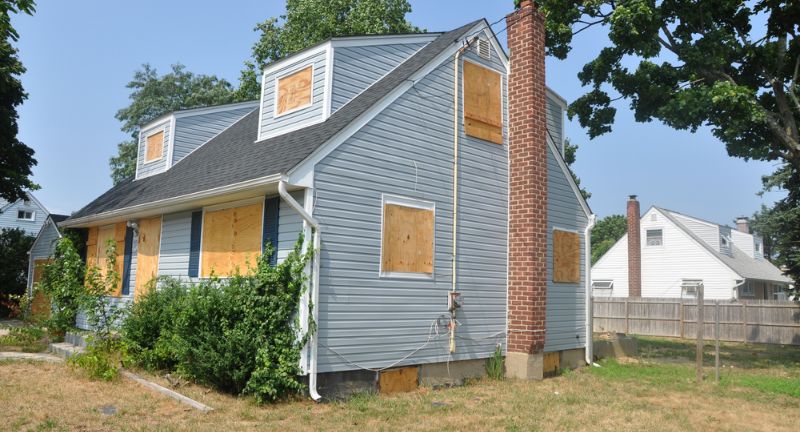
Shutterstock
High crime rates, poorly maintained neighboring properties, or lack of amenities can deter buyers. A property’s value is influenced by the quality of the surrounding neighborhood. Safety and access to amenities are important factors for potential buyers. Agents consider these aspects when evaluating a property’s overall desirability.
Title Issues

Shutterstock
Problems with the property’s title, such as liens or unclear ownership, can complicate the sale. Title issues can delay the closing process and create legal challenges. Ensuring a clear title is essential to avoid disputes and secure financing. Agents recommend a thorough title search to identify any potential problems before proceeding with a purchase.
Overpricing

Shutterstock
A property priced significantly above market value can sit unsold for a long time. Overpricing deters potential buyers and can lead to extended listing periods. Properties that remain on the market too long often need price reductions, which can signal desperation to buyers. Agents advise pricing properties competitively to attract interest and facilitate a timely sale.
Seller Motivation

Shutterstock
A seller who is uncooperative or hiding information may be trying to cover up problems. Transparency and cooperation from the seller are crucial for a smooth transaction. Hidden issues can lead to unexpected costs and complications for the buyer. Agents look for signs of seller motivation and transparency to gauge the potential for a successful sale.
Zoning Restrictions

Shutterstock
Local zoning laws that limit property use can affect future plans for the property. Zoning restrictions determine how a property can be used and developed. Buyers must understand these regulations to ensure their plans align with local laws. Agents review zoning ordinances to identify any potential limitations or opportunities for a property.
Environmental Concerns

Shutterstock
Proximity to contaminated sites or natural disaster-prone areas can pose risks. Environmental factors can significantly impact a property’s safety and value. Buyers should be aware of any environmental hazards that could affect the property. Agents recommend environmental assessments to identify potential risks and ensure informed decision-making.
Aging Infrastructure

Shutterstock
Older homes with outdated systems and materials can require extensive updates. Aging infrastructure often leads to higher maintenance costs and the need for frequent repairs. Modernizing an older property can be a significant investment, affecting its overall value. Agents assess the condition of a property’s infrastructure to estimate potential renovation costs.
Curb Appeal
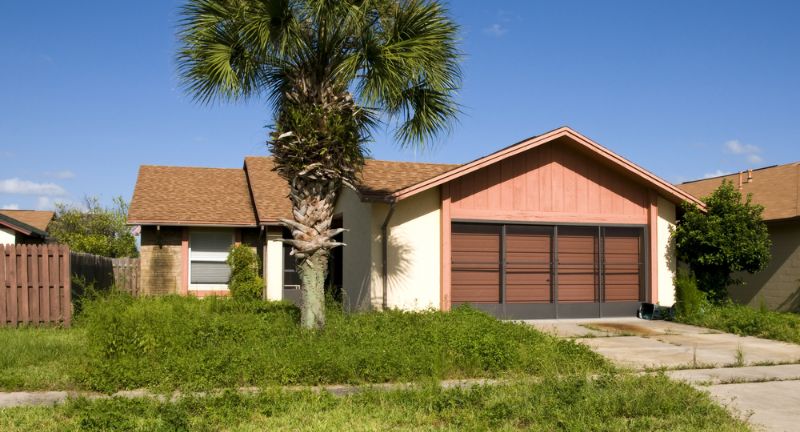
Shutterstock
Poorly maintained exteriors, overgrown landscaping, and unappealing aesthetics can turn buyers away. Curb appeal plays a significant role in attracting potential buyers and creating a positive first impression. Investing in exterior improvements can increase a property’s marketability and value. Agents emphasize the importance of curb appeal in their evaluations and recommendations.
Conclusion

Shutterstock
Navigating the complexities of real estate requires vigilance and an eye for detail. By recognizing these red flags, buyers and investors can avoid potential pitfalls and make more informed decisions. Working with a knowledgeable real estate agent is crucial to identifying these issues and ensuring a smooth transaction. Whether you’re buying your first home or investing in properties, being aware of these warning signs can safeguard your investment and peace of mind. Always remember, a well-informed buyer is a successful buyer.
More From Local News X
-


25 Hobbies To Consider Picking Up For The Colder Months…
-


22 Movies Throughout History That Have Shaped The Children’s Toy…
-


25 Things To Try In The Mornings To Help Make…
-


22 Board Games That Are Just As Good As They…
-


25 Most Common Travel Blunders People Make And How To…
-


25 States That Have The Happiest People
-


20 Most Common Home Renovations People Make Within The First…
-


24 Places You Never Want to Take a Woman on…
-


20 Things You Probably Had In Your House In The…
-


20 Most Beautiful Actresses Of All Time According To Popular…
-


24 Facts About The Big Apple You Probably Didn’t Know
-


20 Facts About The Olympics That Might Surprise You
